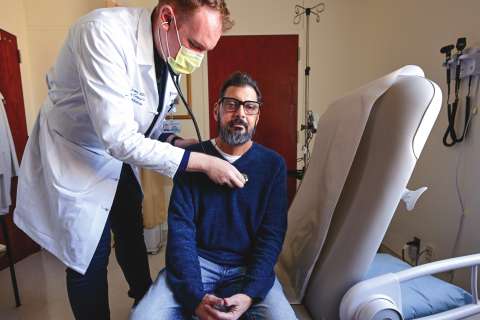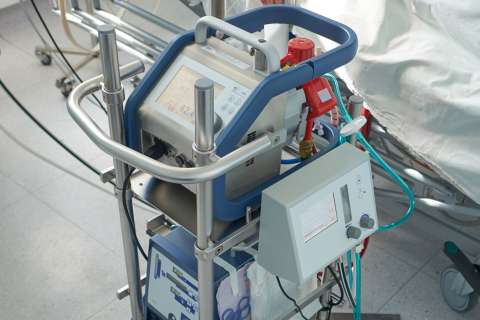To address some of the health care inequities in vulnerable communities that were amplified by the coronavirus pandemic, UCLA Health launched its TechQuity Accelerator initiative in 2021.
On the heels of last year's successful program, which sparked innovation and birthed inclusive technologies and platforms to boost health equity within diverse populations, UCLA Health is assessing a new cohort of innovators to become part of the TechQuity Accelerator.
UCLA Health operates the accelerator in partnership with UCLA Biodesign, BioscienceLA and ScaleHealth, with a sharp focus on supporting startups that feature innovative concepts and a mission to improve long-term community health resilience.
What brought the initiative back this year is the urgency to develop new technology in key strategic areas where pressing need still exists, said Jennifer McCaney, executive director of UCLA Biodesign and Adjunct Associate Professor of Medicine and Management.
What the TechQuity initiative does is bridge that chasm between patients (those who use technology) and the companies that innovate and produce these tech solutions.
"It's hard to understand the voice of your customer for a consumer product, let alone, that of a product designed to address complex, and often misunderstood, health care conditions in traditionally underserved communities," Dr. McCaney said. "The crux of what we seek to do is connect mission-driven founders with the communities they seek to benefit.”
A variety of innovations
The three-month program provides selected startups with personalized mentorship, co-working space, clinical expertise and product-development support, culminating in a final pitch showcase with UCLA Health leaders and community members.
Last year, the focus was heavily on COVID-19. The accelerator supported a variety of innovations and products from remote monitoring technologies and digital platfoms for COVID testing and engagement, to therapeutics for COVID-related conditions. McCaney said one company, IHP Therapeutics, worked on a novel therapeutic to treat pain from sickle cell disease, which is prevalent in Black populations.
"We paired another company, Telebionix, with a fellow to design a clinical study for regulatory approval," she said, adding that the company was developing a remote patient monitoring device that enables patients to be monitored at home after they leave the hospital.
There was a huge demand for remote patient monitoring during the COVID-19 pandemic when hospitals were overwhelmed. These devices continue to be relevant as a tool to improve patients' health care outcomes after they leave the hospital, McCaney said.
This year's TechQuity initiative looks at three main areas: Mental health and youth well being, environmental justice and health care access, which continues to be a challenge.
"With mental health and youth, we're addressing the epidemic of loneliness," she said. "In this context, the program may help companies partner with school systems or local youth groups. With environmental justice, we'll look at the geographic effects of climate change and pollution, which have predisposed certain populations to health-related hazards."
Health care access also remains "limited by education and knowledge," McCaney said, adding that the program would like to see technologies that increase the accessibility of health care so patients in the most vulnerable communities can receive the right care at the right time.
The program is unique in the way in which it involves community advocates as well as individuals and groups these technologies serve, she said.
"Community advocates join and participate, and they are involved in the selection process," McCaney said. While the program has a strong regional focus, they have the ability and desire to bring companies that want to come to the Los Angeles area into the fold.
McCaney said every effort is made to ensure the call for applications is shared across communities and professional organization to reach diverse founders with regard to race and gender.
"Everything we do in terms of structuring our programs including the recruitment and selection process," she said, "is done to improve the health of the patients in the communities we serve.”



